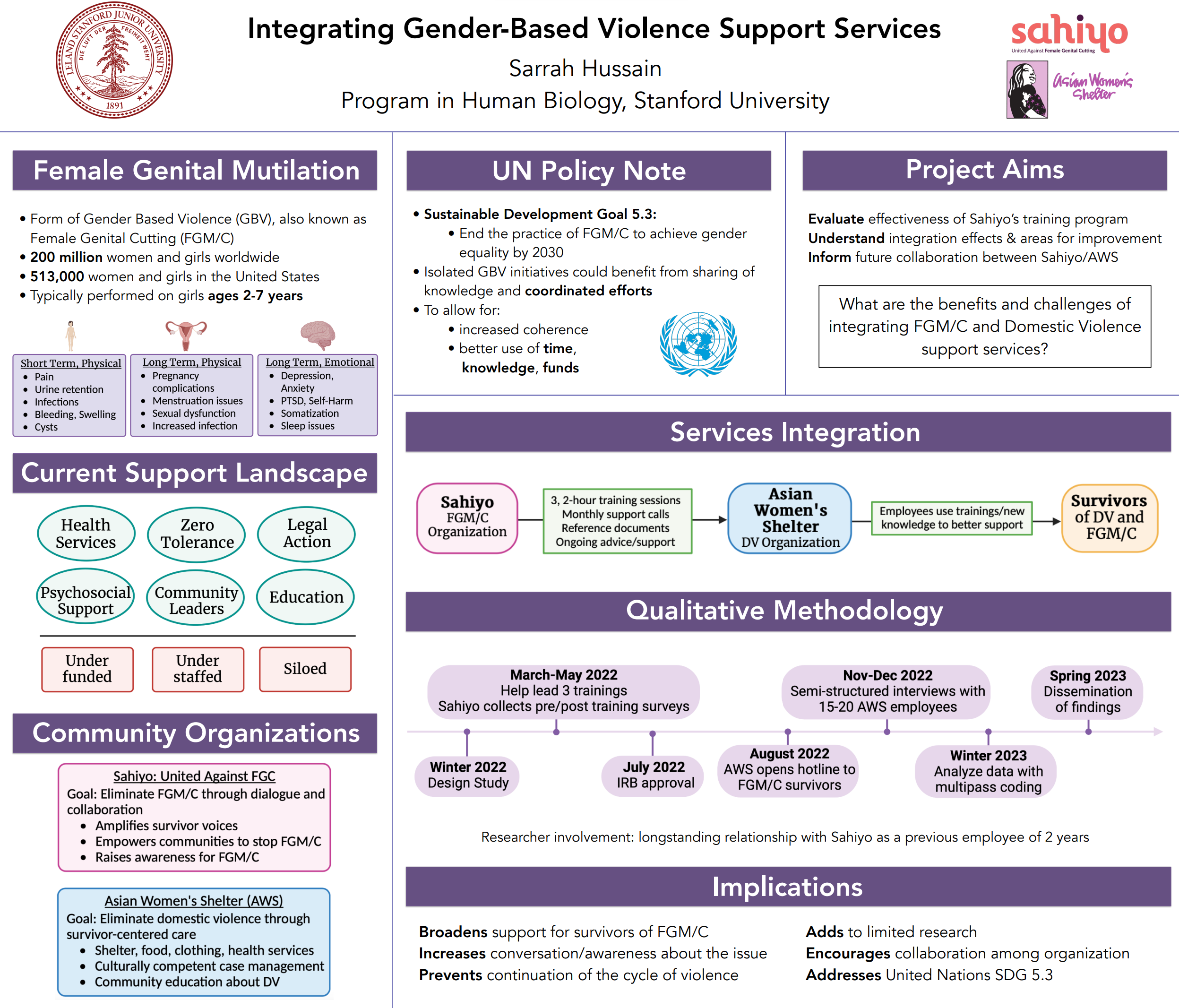Training and Technical Assistance
Sahiyo offers training and technical assistance (T&TA) to educate and build the capacity of service providers and front-line professionals on female genital cutting (FGC). Our programs target gender-based violence organizations, law enforcement, educators, social workers, healthcare and mental health practitioners, as well as others. Through these training sessions, organizations are able to better incorporate culturally responsive programming on FGC into their work.
To schedule a training session, please fill out our Community Presentation Request form and email us at This email address is being protected from spambots. You need JavaScript enabled to view it..
What We Offer
Learning about Female Genital Cutting for Healthcare and Social Services Providers in the U.S.:
Sensitively Reporting on Female Genital Cutting – Media Training:
Treating Survivors of Female Genital Mutilation & Cutting: A Culturally Responsive and Trauma-Informed Approach:
Past Training Sessions
FGM/C 101 For Social Workers Training
Hidden Scars x Sahiyo: Practitioner and Advocate Training
In January 2022, Sahiyo began working with Asian Women’s Shelter (AWS), a domestic violence organization based in San Francisco, CA, on a three-year project funded by the Department of Justice - Office of Victims of Crime to increase the capacity of care for survivors of FGC in the United States. For eight months, Sahiyo has provided a series of in-depth, interactive trainings to AWS staff, volunteers, and crisis line volunteers about FGC, the mental and physical health consequences of this harmful practice, and how to best support survivors. As a result, Asian Women’s Shelter was able to expand the capacity of the crisis line to include supporting survivors of FGC in August 2022. The goal of this collaborative pilot project between Sahiyo and AWS is to address gaps in resources for underrepresented populations of survivors in the U.S. who are in need of support services, in order to reduce the harms of FGC.
“I was so happy to know that Sahiyo is collaborating with the Asian Women’s Shelter to support women who suffer from trauma of FGC and need an empathetic ear. I have worked in the domestic violence (DV) space for a couple of decades, and this is the first time I am seeing a recognition of this trauma in the sphere of DV. I am so proud of both organizations and hope collaboration expands with other organizations throughout the U.S. and abroad.” - Sakina Sharp, Sahiyo Advisory Board Member
Hotline Operator: San Francisco Asian Women’s Shelter
Number: 1-877-751-0880
Hours of Operation: Monday - Friday, 9:00 AM - 5:00 PM PST

Learn more: The impact of integrating FGM/C within domestic violence support services by Sarrah Hussain
Current Projects Involving T&TA
Following the enactment of Washington's Senate Bill 5453, signed in April 2023 to address female genital cutting (FGC), the Washington State Department of Health awarded Sahiyo, and co-applicants, Mother Africa and the U.S. End FGM/C Network, a contract to guide the implementation of Section 6 of the legislation, focusing on prevention and support for survivors.
T&TA Objectives:
- Training Development: Create specialized training programs for state agency staff, community members, healthcare providers, and other stakeholders.
- Stakeholder Engagement: Equip stakeholders with the necessary tools and knowledge to prevent FGC and support survivors.
- Capacity Building: Provide expert-level consultation and coordination to ensure culturally competent practices.
This initiative aims to empower Washington’s strategy against FGC with well-informed, culturally competent practices, potentially setting a benchmark for similar legislative efforts nationwide. For more information, visit the project's website and watch the Year 1 video recap.
Sahiyo, in partnership with the Milken Institute of Public Health, Global Woman Peace Foundation, and the US Network, received a $300,000 grant from DOJ OVW to provide training and technical assistance (T&TA) focused on the prevention and response to female genital cutting (FGC) to community-based organizations across the U.S. working to end violence.
T&TA Objectives:
- Training Development: Design and implement specialized training programs for diverse stakeholders, such as healthcare providers, social workers, and community leaders, to prevent and respond to FGC.
- Create Public Awareness Materials: Develop comprehensive resources, including self-assessments, intake forms, and safety planning guides.
- Build an Online Repository: Establish an easily accessible online platform to house all developed resources on FGC.
- Conduct Webinars: Organize webinars on FGC-related topics to improve understanding and skills to effectively address FGC.
- Host Listening Sessions: Facilitate sessions to gather input to inform and refine training programs and resource development.
